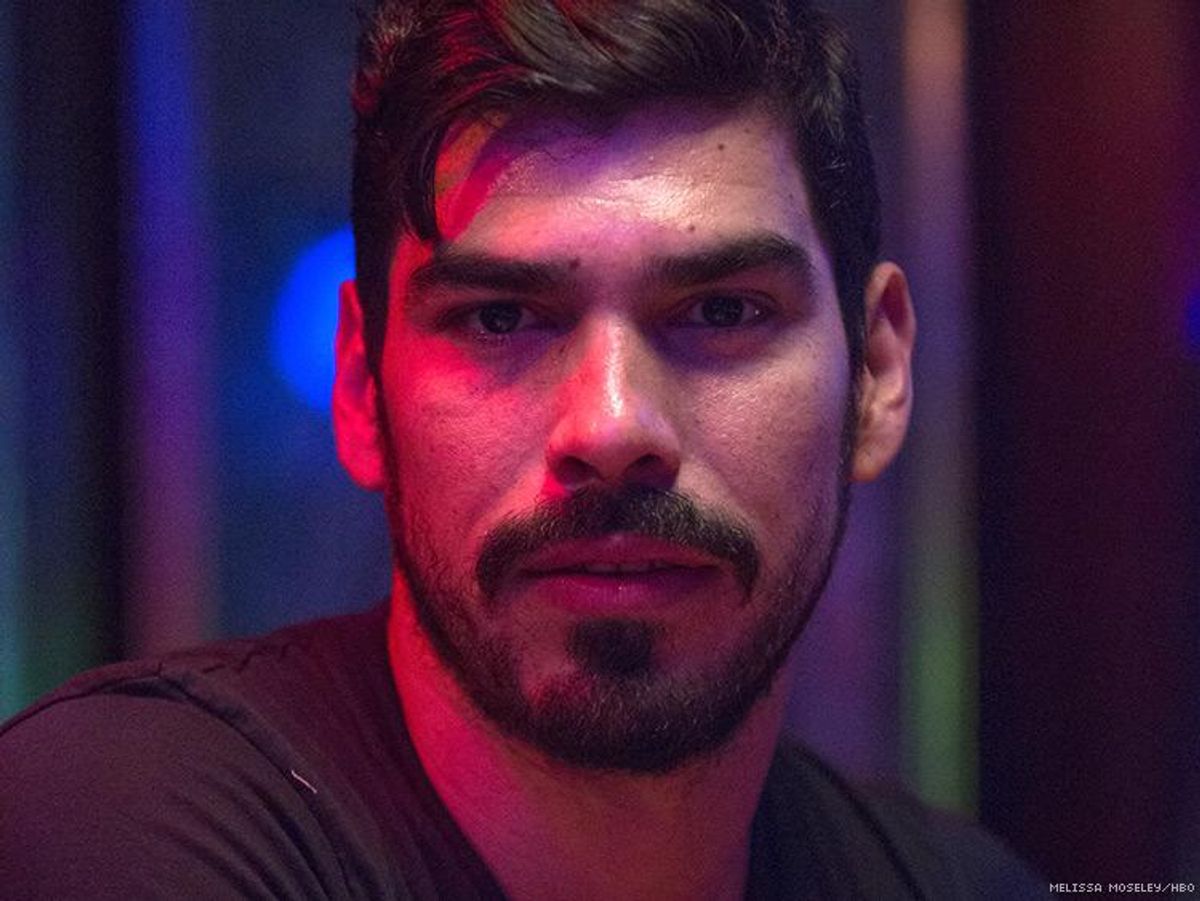Michael Lannan, the creator of Looking, teared up over the phone when he thought about how Richie Ventura, the character played by Raul Castillo, would have responded to the Orlando tragedy.
"Richie is probably a kid who grew up going to places like Pulse and would feel the pain deeply of something like that. I think we all do," Lannan tells The Advocate.
Richie's character was one of two Latino LGBT characters on the series, which was cancelled back in March, that centers around the life of a group of gay men living in San Francisco. The movie, which premieres Saturday night on HBO, will officially close the chapter of the show beloved by critics and fans, that still somehow lacked the ratings to stay afloat.
When he created the show, Lannan did not set out to specifically include Latino narratives. But he says he's always been interested in the intersection between Latinos and "white American culture," because it's "an interesting intersection of two parts of American culture that can be so different, in terms of family and ideas about love and relationships."
Though Looking's Latino characters were written long before Lannan, or anyone, could have imagined the anti-Mexican rhetoric of the Republican nominee for president, Lannan says he felt compelled to include the story of a Mexican-American character because "Latino culture is such an important part of our country, and becoming even more so."

Lannan believes that everyone, at some point, has an experience trying to negotiate love or a relationship with someone who is from a different culture. That's an experience he wanted to depict from the moment he first started writing the pilot for Looking.
"I've always been interested in people who are in a relationship who are really different from each other and from really different backgrounds, and I think that means class, race, and culture," says Lannan, referring to Patrick (played by Jonathan Groff) and Richie's romance. "A story about those two characters felt very relevant and very present today."
Richie and Patrick come from two different worlds. Patrick, who grew up in an economically privileged background, works as a video game designer in the tech world of San Francisco, while Richie, a barber, comes from a working-class family that hails from the suburbs of San Leandro, just outside the Bay Area. The romance between these two characters was always intrinsic to the show for Lannan.
Patrick and Richie date, but eventually break off their romance after Patrick starts seeing his boss Kevin, who eventually goes on to break his heart. In the fifth episode of Season 2, "Looking for Truth," Richie takes Patrick to his hometown to help him move an ice cream truck, and meets Richie's cousin, Ceci, and Richie's childhood friend, Hector. Though the audience does not get to meet the rest of his family, Ceci and Hector provide clues through their interactions with Richie that reveal the complicated relationship he has with his family because of his sexuality.
Ceci, Richie's cousin, is played by Tanya Saracho, the writer who wrote the script for "Looking for Truth." Saracho says the Looking writers' room went back and forth about Richie's relationship to his family. They didn't want to stereotype Richie, but they also didn't want to ignore the homophobic reality that many gay Latinos face when they come out to their families.
"Discussion over this aspect of Richie's backstory took more than just a day, it took a few weeks to decide on it -- and then the discussion continued even after there were drafts and drafts of the script," Saracho tells The Advocate over email. "These are very real obstacles to navigate for Latinx queers -- the lack of acceptance by family, value in hypermasculinity, the stigma, etc." wrote Saracho.
Three of the screenwriters in the Looking writers' room are of Latinx descent, and that allowed for "a sort of short-hand when talking about the umbrella term of Latinidad," explains Saracho.

Saracho, who is queer, has known Castillo since she was a teenager -- the two were high school sweethearts, who grew up in border town of McAllen, Texas, before they both left their hometown to pursue careers as actors and writers. The pair never thought they would end up working on the same show together, but after 22 years of friendship, they were reunited to build on the background of this LGBT Latino character who isn't painted as an archetype, like many Latinos depicted on television are.
Saracho is hopeful that Richie's character could open more doors for LGBT Latino characters in the future, but she remains cautious. "We are talking about two 'otherized' communities -- Latinx and queers," she explains. "Both those communities have struggled for proper representation, access and opportunity in all aspects of American life, right? Not just in Hollywood. So of course, we're going to be marginalized in TV."
Indeed, a University of Southern California study on diversity in entertainment revealed that Latinos make up only 5.8 percent of the characters depicted in film and television, despite being 17 percent of the U.S. population. The study also shows that 72 percent of all LGBT characters in TV and film are male, and 78 percent of those depicted are white.
What will it take for Hollywood to become more inclusive of LGBT Latino people, beyond having creators who are writing complex, three-dimensional characters of color such as Richie? Money is what does all the talking in that world, explains Saracho.
"I think 'Hollywood' is understanding that we are a great mass which will have to be addressed sooner or later," Saracho says. "We are a big chunk of the population who contributes to the economy and who consumes entertainment. That's the main thing. Money talks and we're buying movie tickets and watching television -- they are going to have to deem our stories worthy of representation sooner or later, or it's going to start to hurt business side of it."




















































































